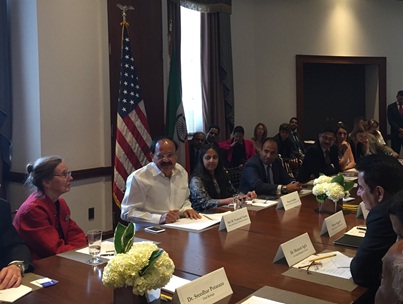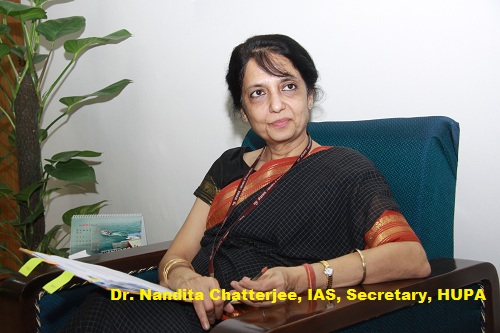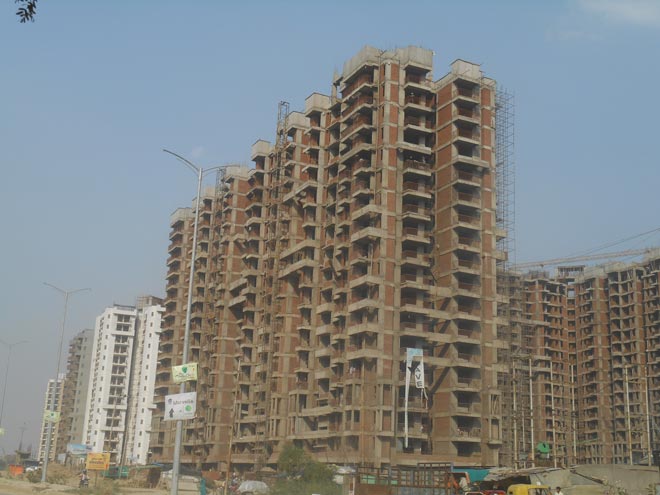Interviews
Land buys, not acquisition should be the norm




In an exclusive interview with Palash Roy, Editor, Realty & More, Rural Development Minister Jairam Ramesh, reflecting on the changing times says the future should be more about land buys and land leases and not just land acquisition.
PR: What will be the role of Land Acquisition and Rehabilitation and Resettlement Authority? When
is it expected to be up and running?
JR: The body (Land Acquisition and Rehabilitation and Resettlement Authority) is designed especially to hear and resolve all kinds of disputes arising out of land acquisition. These could be related to the payment of compensation or a general dissatisfaction with the manner or form of the benefits being provided for rehabilitation and resettlement. The Authority has to conclusively resolve these disputes within six months.
Decisions can only be appealed against in the High Courts. It shall be the responsibility of the government that is carrying out any acquisition to establish this LARR Authority as soon as the Act comes into effect.
PR: While the industry has serious concerns on some of the provisions of the land acquisition bill, industry bodies have also said that the cost of land acquisition is likely to increase by 3-3.5 times, making industrial projects unviable and raising costs in the overall Indian economy?
JR: It is expected that while the financial cost of acquisition will go up, the social cost of acquisition will come down. However this cost will not 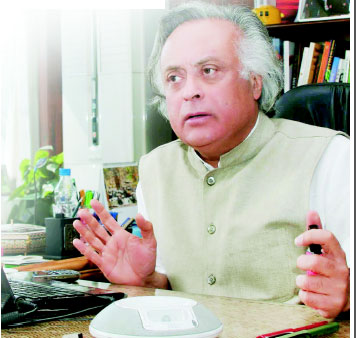

objective to encourage people to purchase land rather than acquire it.
PR: But how will circle rate be calculated in rural areas?
JR: Circle rate is not a concept that has been created under this new law. Circle rates are the standard rates that are found in revenue records. They are under reported by some individuals to avoid paying taxes on a larger amount. This law seeks to address that shortcoming by using either the circle rate or the highest sales price in that area and then multiplying it to arrive at a sum that is in the best interests of the person who is losing his or her land.
PR: Land owners may not have much to say after all. Clause 63 prevents them from contesting state decisions.
JR: This is incorrect. What that clause seeks to say is that the decision of the administrative authority is final vis-à-vis other officers above him. This has been done to prevent state governments from instituting long chains of bureaucratic command that a person would have to go through before receiving his or her award. Judicial remedies have been provided to challenge this decision within the Act itself including an appeal to the High Courts.
PR: Don’t you think rehabilitation and resettlement of the tribal communities is still a grey area that remains to be resolved?
JR: This law marks a landmark step in the development of tribal rights. We have been especially mindful of the deprivations faced by our
brothers and sisters belonging to the tribal communities. To address this, we have included a special chapter which outlines additional benefits
and safeguards whenever tribal families are displaced. In addition to this, we have also mandated that the consent of gram sabhas in Schedule V areas of the Constitution be taken before any acquisition is carried out.
PR: Developers say the worst-hit could be low-cost and budget housing projects. The idea of low cost housing was to get cheap land. If land prices shoot up, so will the prices of the finished product.
JR: This would only be true if acquisition was the only means of procuring land in this country. Developers are still free to go and purchase the
land if they so desire. In fact, we want to discourage people from viewing acquisition as their primary option. More equitable (and less
displacing) options such as private purchase or leasing land should become the norm.
PR: The Bill talks of an urgency clause which, when simplified, means the government can acquire land ignoring all pre-conditions set for acquisition in the bill. Your take on that..?
JR: One of the most far reaching features under this new law is the revised urgency clause. This was the most abused clause under the old Act. Being completely mindful of this we have narrowed the scope of the new urgency clause to just two situations: natural calamities and national
defence. There is no other situation in which it can be invoked.
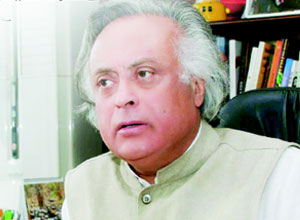

Ramesh went on to study technology policy, economics, engineering, and management at the Massachusetts Institute of Technology.
Ramesh, representing Andhra Pradesh in the Rajya Sabha since 2004, is widely acknowledged as the brain behind the new
land acquisition bill. Recently, he is reported to have remarked that he changed his mind thrice over the implementation of the Bill before deciding to bring it to the public forum. Earlier, the minister had credited the Bill to Congress vice-president Rahul Gandhi, which is widely viewed by the opposition parties as a Congress election ploy.
Ramesh is making an all-out effort to make the law stringent for wrong doers while seeking to address the core concerns of consent, compensation, rehabilitation and resettlement, and the process and procedure thereby formed under the new law. Earlier, the misuse of
the 1894 Act had led to the spread of leftwing extremism. It is expected that while the financial cost of acquisition would go up due to the new Bill, the social cost of acquisition would come down. Seeking to alter crucial perceptions, Ramesh says with the cost of land being only a small fraction of the total project cost, just about 1-4 per cent of the total project cost, the proposed law if properly implemented has the potential to defeat the scourge of the Maoist movement which plagues huge tribal-dominated tracts across central India.


-



 News3 weeks ago
News3 weeks agoKW Delhi 6 Mall Onboards New Brands
-



 News3 weeks ago
News3 weeks agoManasum Senior Living Launches IKIGAI GOA, A Senior Living Community in North Goa, in collaboration with Prescon Homes
-



 News2 weeks ago
News2 weeks agoGodrej Properties Sells Rs 3k cr+ Homes of Godrej Zenith, Gurugram, within 3 days
-



 News3 weeks ago
News3 weeks agoBridging India Divide: Top 5 Tier- 2 Cities to Focus On
-



 News3 weeks ago
News3 weeks agoCommercial Realty Gets Tech Savvy: Fast Construction, Enhanced Convenience
-



 News3 weeks ago
News3 weeks agoMultipoint Connection – A Definite Boon
-



 News2 weeks ago
News2 weeks agoRBI’s Status Quo on Key Policy Rates to Help Maintain the Real Estate Growth Momentum, Say Industry Stalwarts
-



 News3 weeks ago
News3 weeks agoSacred Cities See a Retail Boom as Spiritual Tourism Surge: CBRE Report










